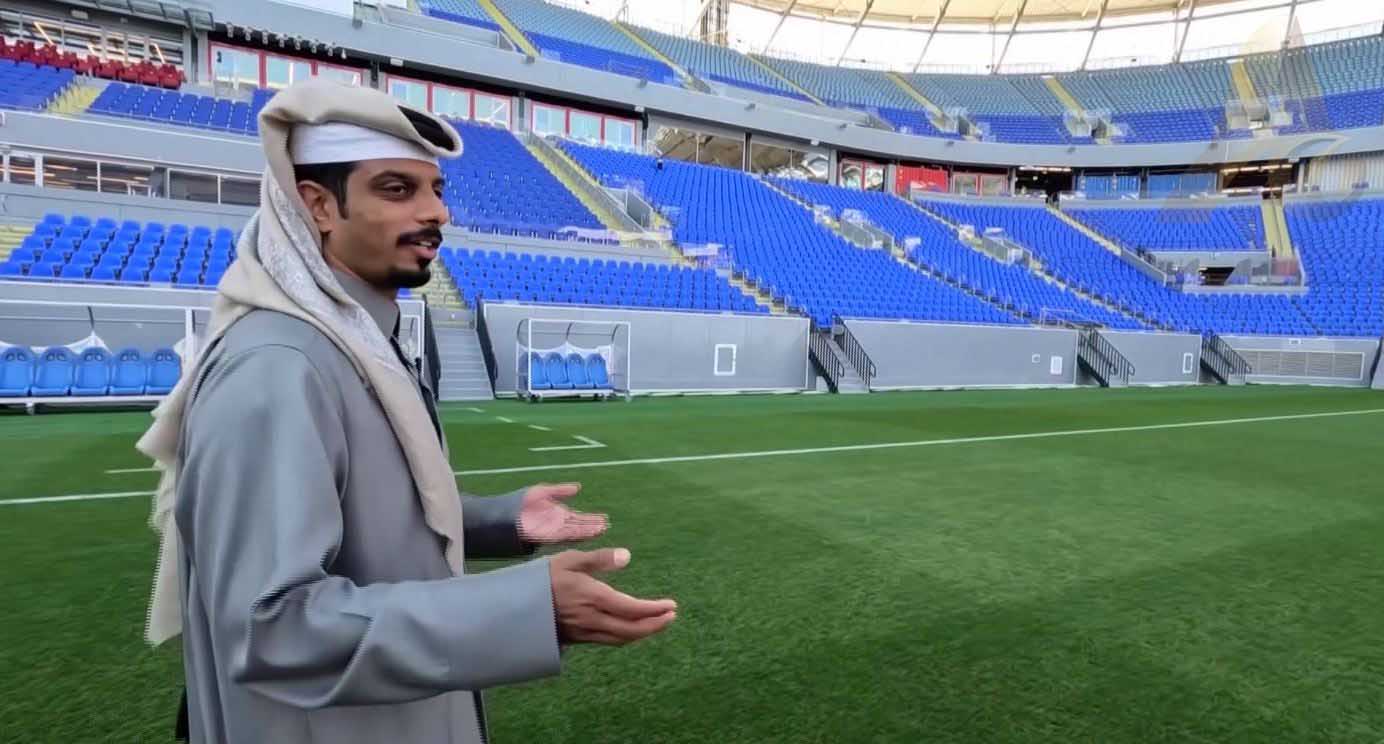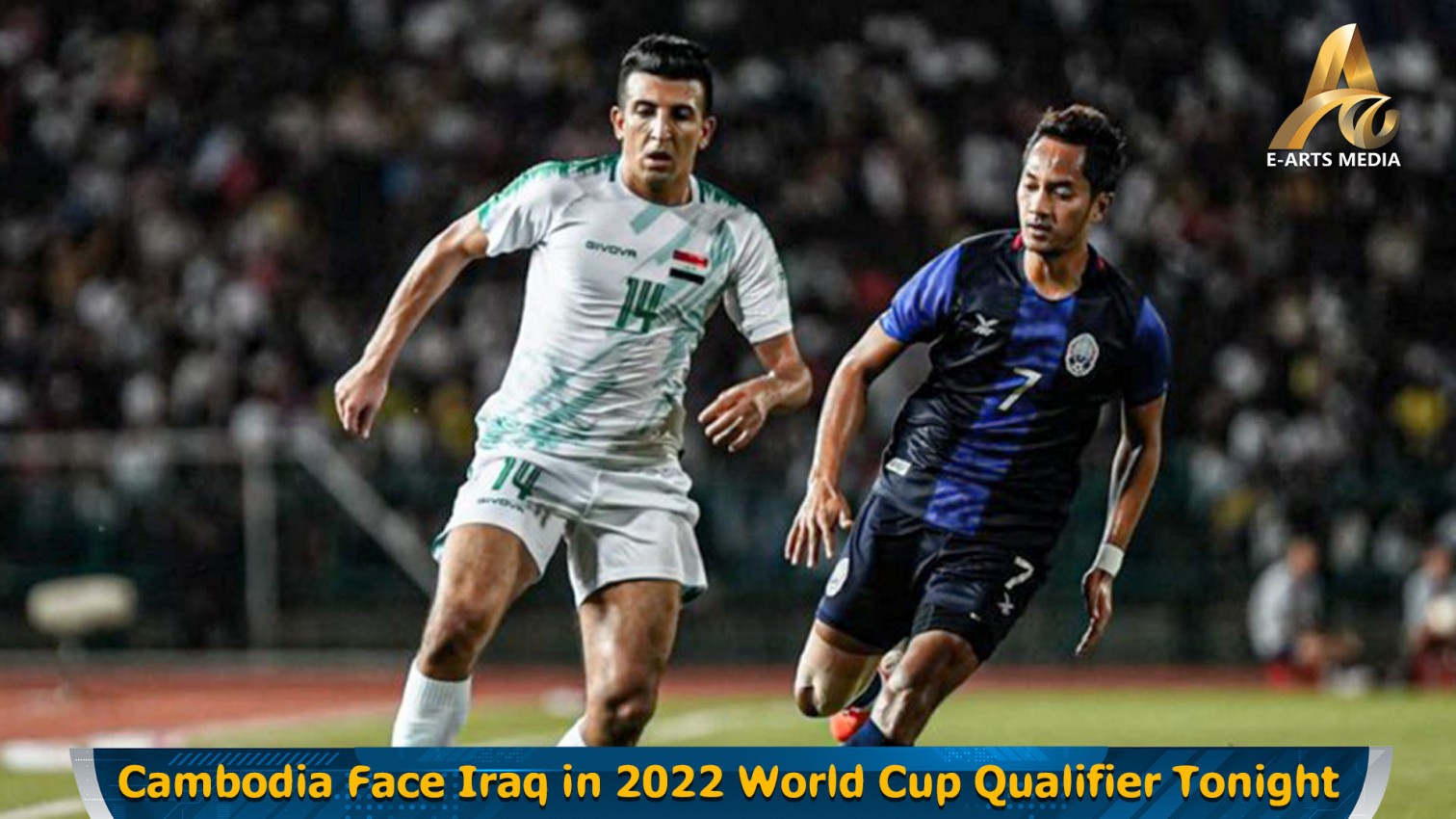INTERNATIONAL: Winter will come early to soccer stadiums in baking-hot Qatar when groundskeepers blast chilled air starting in September to ensure pitch turf thrives in the desert country for the World Cup.
Mimicking winter in the Gulf state, where temperatures can swelter at 40 Celsius (104 Fahrenheit) in the fall, is just one trick experts have introduced over the last 14 years to improve turf quality and increase the number of soccer pitches.
An elite corps of groundskeepers now maintains 144 green, lush fields -- eight stadium pitches and 136 training grounds. They blast chilled air through nozzles directly at the turf, tending luxuriant patches of green dotted amid the dun or grey of Qatar's desert and concrete.
"The weather condition and the climate together with the level of performance criteria we have set for ourselves makes it extremely challenging to develop the product we need. But we succeeded," said Haitham Al Shareef, a Sudanese civil engineer who has worked on Qatar's pitches since 2007.
Preparing turf for the World Cup, being held for the first time in the Middle East, is environmentally costly.
CIVIL ENGINEER: "Preparing and growing high quality sports turf is generally challenging but here in Qatar it was a different level of challenge."
CIVIL ENGINEER. "The weather condition and the climate together with the level of performance criteria we have set for ourselves makes it extremely challenging to develop the product we need. But we succeeded."
CIVIL ENGINEER "It's a significant challenge. Because the warm season grass doesn't really grow in winter. It doesn't die, but you don't get what we call the recovery. When you have wear and tear, you want the grass to keep growing to recover. The warm season grass usually goes dormant in winter."
CIVIL ENGINEER "If you seed the pitch too early, you will have germination, but the winter grass will not really grow, it will actually die because it's too warm. So we are trying to balance all factors and choose the right time. And this is again, an annual process."
PREVIOUS PROJECT MANAGER. "I am proud of the whole project but the grass is where the action is happening especially during the event itself, but again as a target for us was not to do any re-turfing during the event (FIFA Arab Cup 2021) and even after the event itself we didn't have to do any re-turfing, so maintaining the quality and the grass with the performance and having a successful tournament without any impact on the grass which is the main field of action for the tournament and for the players, we were very proud and very happy."
Qatar flies in 140 tonnes of grass seed annually from the United States on climate-controlled aircraft, Al Shareef said, and pitches are watered with desalinated seawater, in an energy-intensive process burning the country's wealth of natural gas.
Each pitch requires 10,000 litres of desalinated water daily in winter and 50,000 litres in the summer, he added.
The 28-day event begins in November at perhaps the most challenging time of year for durable turf, as Qatar's weather transitions from searing summer to mild winter.
Some grass varieties turn dormant as temperatures rise and winter ryegrass takes root, making adequate growth a challenge between matches.
So, groundskeepers trigger winter in September, seeding pitches with ryegrass in a practice that has over the last three years yielded durable pitches.
Qatar has also countered the risk of fungus and disease outbreaks with a maintenance regime involving chemical cocktails, grass mowers that vacuum debris and an underground system that sucks excess moisture, said a UEFA pitch consultant.
Qatar says it is prepared for any turf emergency. A 425,000 sq metre reserve of grass – some 40 soccer pitches worth – is growing at a farm north of Doha.
It can be harvested, trucked to a stadium and lay down ready for play in as little as eight hours, said Mohamed Al Atwaan, who worked as a project manager on Stadium 974.
Organisers have declined to say how much the turf programme has cost Qatar, a wealthy gas exporter that spent billions on infrastructure over the last decade to prepare for the event.
PHOTO: AERIALS SHOWING TURF NURSERY AT UMM SLAL / CIVIL ENGINEER HAITHAM AL SHAREEF TALKING ABOUT THE CHALLENGES OF GROWING GRASS IN QATAR / WORKERS AT NURSERY / STADIUM 974 AND KHALIFA INTERNATIONAL STADIUM






















